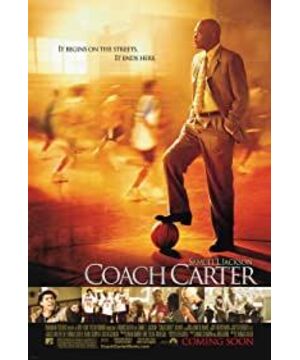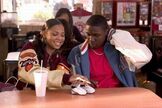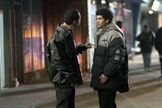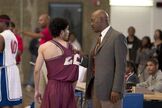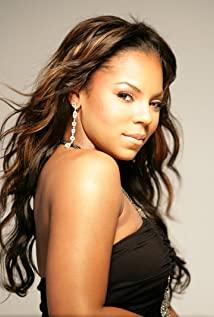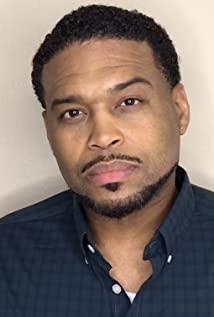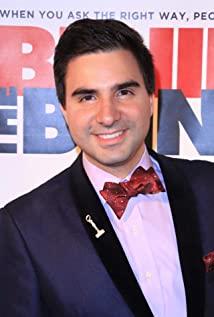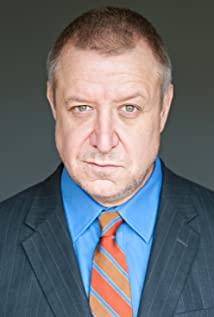When I got up in the morning and looked at the official account, I saw the title of an article, which can be used as the title of this summary "If education has a starting line, it must be the knowledge of parents." (There is a feeling of intergenerational transmission, and we will return to the social system when we trace the origin.)
The context of this film has a premise that human nature is inherently good. Whether it is the children, parents, the principal or coach Carter in the film, they are all kind in their hearts and have no subjective malice.
It's just because they have different knowledge, so they have different understandings of education and different plans for their children's growth, resulting in all kinds of conflicts.
1. Coach Carter and Principal Garrison
"No one wants them to graduate, no one wants them to go to college," is what Coach Carter said when he argued with President Garrison, and it was a stark reminder of a deeply ingrained belief. This reminds me of the viewpoints of critical pedagogy, "School education is a tool to maintain social injustice and injustice, and it is the source of social differentiation" and the theory of reproduction mentioned in "School education realizes cultural reproduction through symbolic violence, and cultural reproduction. Reproduction leads to social reproduction, which in turn realizes the identification of one's own identity and the legitimization of inequality". This is well reflected in the film. Coach Carter, who has left this class and realizes this kind of unequal black people, is a bit "out of place" to return to Richmond High School. His educational philosophy is in conflict with Principal Garrison. , so when Garrison refuted Coach Carter, he said, "Your job is to win the basketball game, and I recommend doing your job well," and Coach Carter's response to Principal Garrison was even more thought-provoking, "But your job is to make After the students graduate, I suggest you do your job well."
Doesn't Garrison love these kids? how is this possible. Principal Garrison was seen cheering them on every game, and the conversation with Coach Carter, while showing her inadequacies, couldn't erase her goodwill.
2. Coach Carter and parents
The portrayal of children and parents in the film is mainly in three places.
The first is a scene where parents object to signing the contract, when Coach Carter offers to buy a tie at a Christian charity shop, the parents say "we're not that poor yet";
The second is Junior Battle's mother to "please" coach Carter, "I agree that he needs to study hard, but I never imagined that the opportunity to go to college would happen to my son";
The third is that parents rallied on the board to demand that Coach Carter be fired. It is very interesting that after Coach Carter said that the information that Richmond conveyed to the children was incorrect and the ending of his teammates in Richmond, he proposed that he would leave if he resumed training. The parents applauded and "Good". Ironic; at the time of the vote, only the moderator and Principal Garrison supported the suspension, still a perception difference.
3. Coach Carter and the kids
Coach Carter leads the team with strict discipline, but there are still several points of his warmth in the film. How could someone who really cares about children lack such warmth? Cruz did not complete the suicide run and push-ups. The team members did it for him. Coach Carter's eyes and expressions were really funny!
A phone call with his wife after winning the Bayhill tournament; comforting Cruz who wakes up after his mate was killed.
The scene of the children studying in the gym really moved me. While they were studying, you could see that the three teachers were accompanying them.
The final state league Richmond failed, but it was a pretty good ending. For these children who are just beginning to know themselves, the success or failure of this game is actually the most precious gift. After all, they won the respect of their opponents and won the slightly "sentimental" words of Coach Carter, and finally walked out of the lounge, and Richmond's classmates still applauded them.
The Richmond Oilers did not win the State Championship, but they won 5 college scholarships and 6 members of the team went on to college.
Junior Battle went to San Jose State University on a full of scholarship.
Jason Lyle went to San Diego State University and graduated with a degree in Business Administration.
Timo Cruz attended Humboldt State University where he became a starting guard.
Jaron "Worms" Willis received a scholarship to San Francisco State University where he played point guard for four years.
Kenyon Stone attended Sacramento State University and received a degree in Communications.
Damien Carter went on to break the Richmond High School scoring and assist records previously held by his father. Upon graduation, he received a scholarship to the US Military Academy at West Point.
In this way, 6 people entered the university. Originally, Principal Garrison said Richmond had only 50 per cent of graduates, mostly girls, with five of the 15 kids on the team if lucky. From this point of view, Coach Carter should be successful.
On the contrary, under such a social system and cognition, it seems so humble when we talk about the kindness of everyone in this film.
View more about Coach Carter reviews


